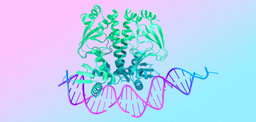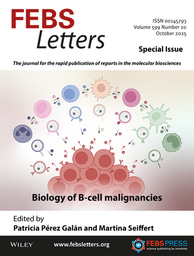Driving sustainable transformation in research: Let's talk about how

For the past three months, I've been working as the Sustainability Officer at the Max Delbrück Center – and I still feel like a bit of a novice. Getting the chance to write for the FEBS Network is a huge honor, but it also made me wonder what fresh insights I could offer to this brilliant community of experts at FEBS. I’m not entirely new to the research ecosystem: over the last few years, I worked as an adviser to the president of the Helmholtz Association, a role in which I gained solid insights into research policy, chatted with renowned scientists (until they realized I was just an adviser 😉), and exchanged ideas with colleagues from research institutions worldwide.
To keep things interesting, I thought we could discuss what are the significant ways we can boost sustainability in research. So here are four discussion points from a (not so) newbie:
1. Creating a Shared Narrative: Yes, our institutions cause significant amounts of greenhouse gas emissions. For example, the Max Delbrück Center generates around 20,000 tons of CO2e annually. Yes, our labs produce a lot of plastic waste. Yes, we need to be more mindful in planning our research processes. And of course, as publicly funded research institutions, we have a special role model function regarding the sustainable transformation of society. However, our primary mission is to research a livable and healthier future. We must become greener, but this needs to be achieved without compromising our scientific performance. Because our business model is sustainable at the very core. This is the message we should spread within the scientific community or when engaging with policymakers and funding agencies. My suggestion: Regardless of the topic, let's include a few sentences on the positive sustainable impact of our work in every paper, post or presentation!
2. Navigating Regulations and Building Relationships with Policy and Funding Bodies: Sustainability is a highly political issue, and the demands on research institutions' sustainability performances are becoming increasingly specific. Many public funding agencies now actively inquire about sustainability criteria. Large research institutions in Germany must implement energy management systems and produce comprehensive sustainability reports in line with the EU Corporate Sustainability Reporting Directive. To ensure such regulations are designed appropriately for the scientific context, the sustainability community needs trustworthy relationships and continuous exchange with relevant decision-makers. So, ask yourselves critically: Is my institution connected to the relevant points of contact at the ministry or funding agencies?
3. Building a Solid Data Foundation: Because "You can't manage what you can't measure." I believe my job as a sustainability officer is to support our scientists in their research – not hinder them. Sustainability measures we implement must be developed jointly with the scientific community and demonstrate tangible benefits. Given the limited resources in sustainability departments, we should focus on initiatives that promise measurable successes. And if we can financially quantify resource efficiency and CO2 savings, it makes it easier to convince our institute's leadership. My proposal: Each change we implement should be supported by at least one measurable parameter – whether it's saved euros, CO2 reductions, or a demonstrable benefit to the community.
4. Incentivizing Sustainability Performance: There is probably no more grateful community for a sustainability officer than the highly committed and open-minded staff at a research institute. However, colleagues have many commitments and limited capacity to engage in the sustainable development of structures and processes. We need to find ways to ensure that, alongside excellent research, engagement in sustainability also counts on the academic CV. And then there's the paradox of savings: When research groups engage and achieve savings, they often do not directly benefit from them. Wouldn't that be a crucial incentive to stimulate the creativity of our researchers? Ideas for more sustainability and resource savings should be rewarded. What I have in mind are ideas like suggestion incentive programs or internal green revolving funds (see also: Intracting at University of Kassel or Harvard Green Revolving Funds).
What I have realized in recent months is that the community of sustainability experts and like-minded scientists is larger than I ever imagined. And I learn about new best practices every day. From colleagues here at Max Delbrück Center or at Helmholtz, who have internalized the concept of sustainability – whether in planning our future energy supply, efficient data management, or waste segregation in the laboratory. Or from you in the FEBS community! Hence, I am eager to hear about further best practices and your thoughts on the major levers for driving sustainability in the research system.
Image by Rosy / Bad Homburg / Germany from Pixabay





Join the FEBS Network today
Joining the FEBS Network’s molecular life sciences community enables you to access special content on the site, present your profile, 'follow' contributors, 'comment' on and 'like' content, post your own content, and set up a tailored email digest for updates.